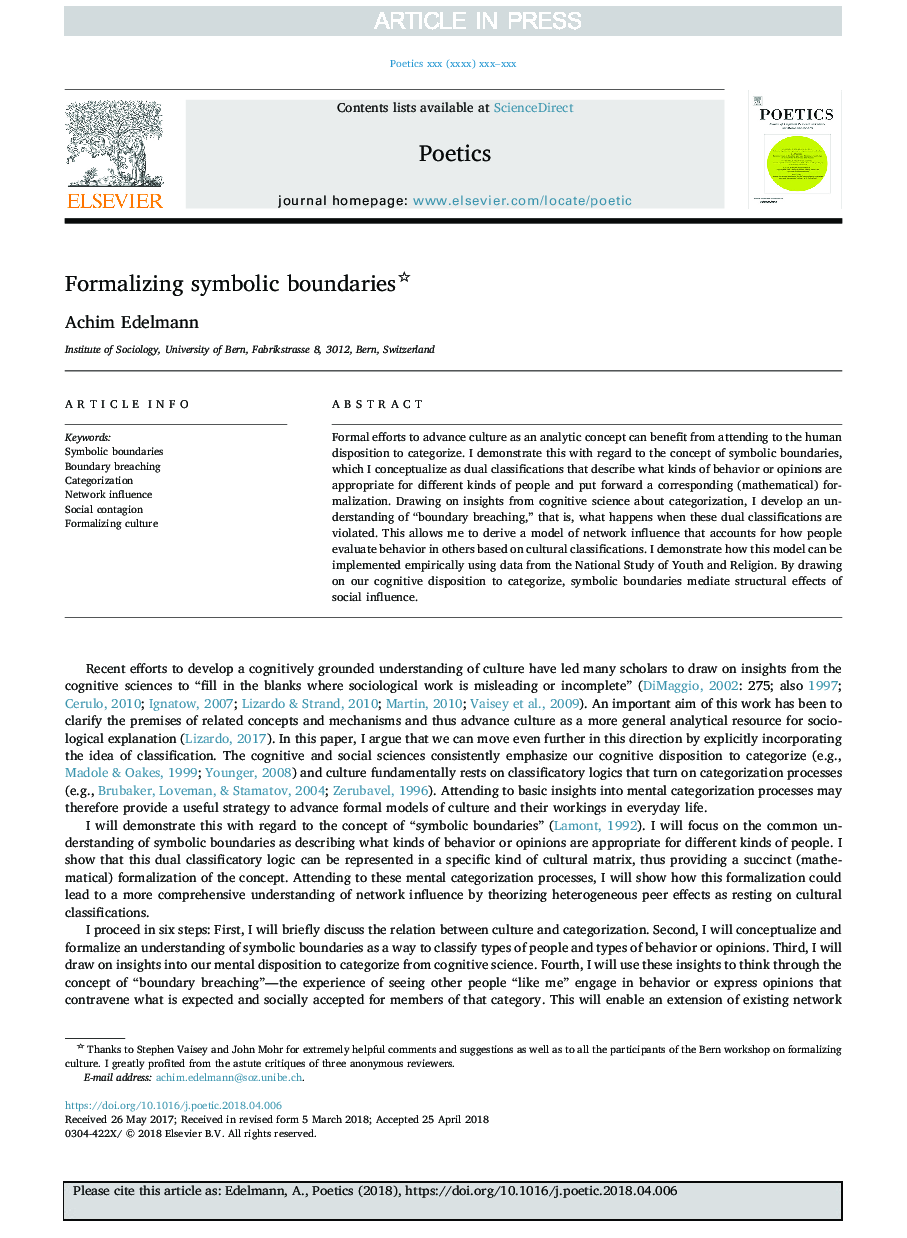| Article ID | Journal | Published Year | Pages | File Type |
|---|---|---|---|---|
| 7538088 | Poetics | 2018 | 11 Pages |
Abstract
Formal efforts to advance culture as an analytic concept can benefit from attending to the human disposition to categorize. I demonstrate this with regard to the concept of symbolic boundaries, which I conceptualize as dual classifications that describe what kinds of behavior or opinions are appropriate for different kinds of people and put forward a corresponding (mathematical) formalization. Drawing on insights from cognitive science about categorization, I develop an understanding of “boundary breaching,” that is, what happens when these dual classifications are violated. This allows me to derive a model of network influence that accounts for how people evaluate behavior in others based on cultural classifications. I demonstrate how this model can be implemented empirically using data from the National Study of Youth and Religion. By drawing on our cognitive disposition to categorize, symbolic boundaries mediate structural effects of social influence.
Related Topics
Social Sciences and Humanities
Arts and Humanities
Arts and Humanities (General)
Authors
Achim Edelmann,
